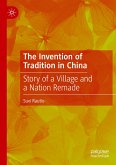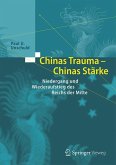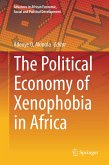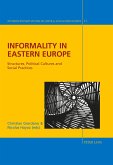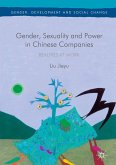In China, heritage projects are sprouting across the countryside carrying the promise of Xi Jinping's "Chinese dream" as a call for the great revival and rejuvenation of the nation. This book unravels the workings behind these promises through the story of remaking Meili, a Dong ethnic minority village nestled along the margins of China, into a "Traditional Village" heritage site. In a past riven by deep political and societal disruptions, Meili becomes a medium for contesting, mediating and continuously inventing representations of tradition that aligns with the Chinese Communist Party's mission towards continuity and stability. The outcome is an original depiction of the compromises that shape heritage-making in a rural ethnic corner of China. Filled with rich, fine-grained narrative and analysis, Suvi Rautio offers a unique lens to the politics of inventing tradition and its far-reaching consequences in steering China's national identity under Xi Jinping rule.
As someone who has spent much of my career exploring ethnic villages and analyzing heritage development in Guizhou, I found this book fresh and rewarding. I learned a great deal and especially appreciate Rautio s attention to everyday details, as well as her deeply reflexive account of fieldwork practice. Her commitment to representing the world of her interlocutors and the honesty with which she confronts the challenges of that representation make this book a valuable contribution. (Tim Oakes, The China Journal, Vol. 94, July, 2025)
This book s strength lies in its multiscalar, perspectival analysis. ... Rautio s book offers a profound exploration of how heritage preservation becomes both a capitalist enterprise and a nationalist project. ... Ultimately, this wonderful ethnography serves as a compelling account of the making and remaking of tradition and the contested futures of rural China. (Dayabati Roy, Suomen Antropologi, Vol. 49 (4), 2025)
Rautio s book is a highly insightful and powerful read on the invention of traditions in rural ethnic China. Its insights lie in the rich ethnographic details the author gained through painstaking fieldwork and her deep connection with the villagers. This book should appeal to a wide range of audiences, including scholars and students who are interested in rural China, heritage-making, ethnicity, and the politics of development. (Jingyu Mao, Asian Ethnicity, October 4, 2025)
As someone who has spent much of my career exploring ethnic villages and analyzing heritage development in Guizhou, I found this book fresh and rewarding. I learned a great deal and especially appreciate Rautio s attention to everyday details, as well as her deeply reflexive account of fieldwork practice. Her commitment to representing the world of her interlocutors and the honesty with which she confronts the challenges of that representation make this book a valuable contribution. (Tim Oakes, The China Journal, Vol. 94, July, 2025)
Rautio s book is a highly insightful and powerful read on the invention of traditions in rural ethnic China. Its insights lie in the rich ethnographic details the author gained through painstaking fieldwork and her deep connection with the villagers. This book should appeal to a wide range of audiences, including scholars and students who are interested in rural China, heritage-making, ethnicity, and the politics of development. (Jingyu Mao, Asian Ethnicity, October 4, 2025)
As someone who has spent much of my career exploring ethnic villages and analyzing heritage development in Guizhou, I found this book fresh and rewarding. I learned a great deal and especially appreciate Rautio s attention to everyday details, as well as her deeply reflexive account of fieldwork practice. Her commitment to representing the world of her interlocutors and the honesty with which she confronts the challenges of that representation make this book a valuable contribution. (Tim Oakes, The China Journal, Vol. 94, July, 2025)



